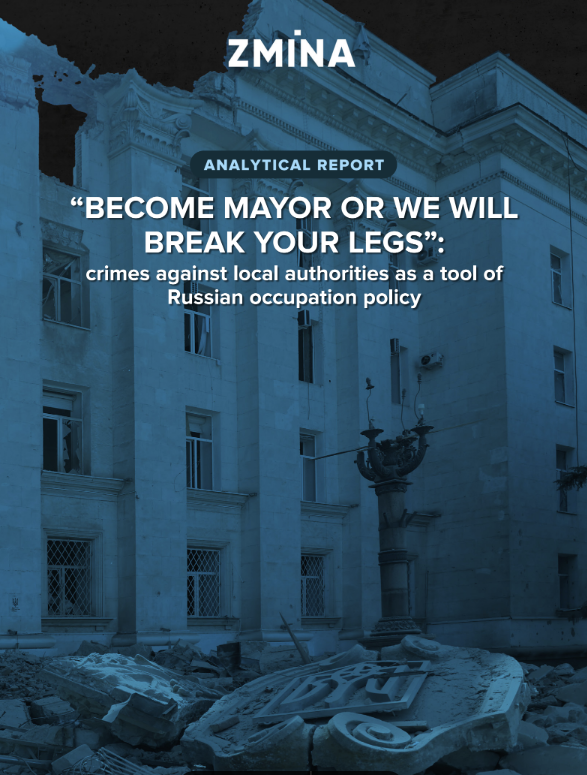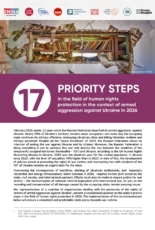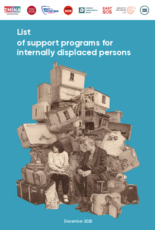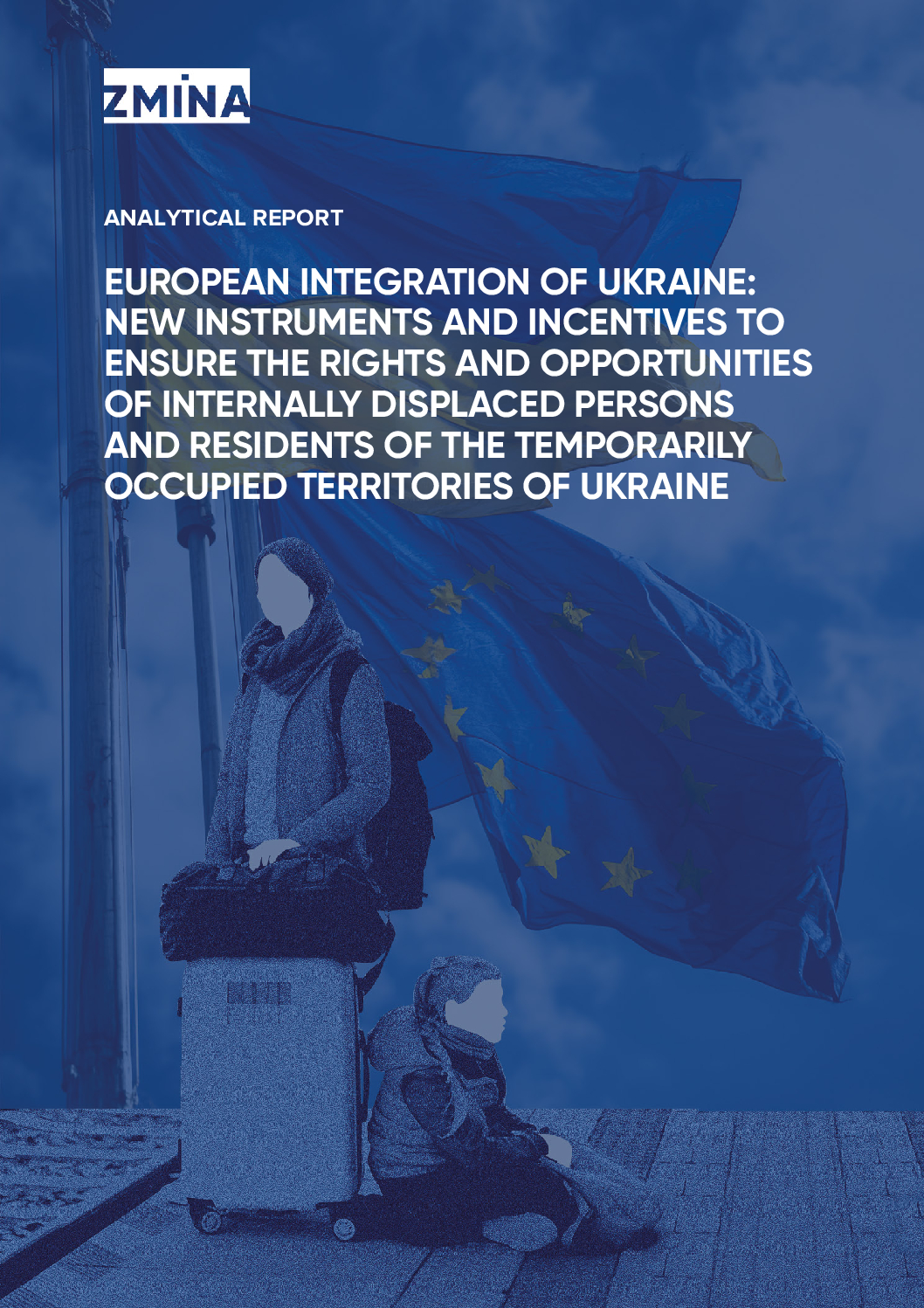“Become mayor or we will break your legs”: crimes against local authorities as a tool of Russian occupation policy

This report highlights systemic violations committed by the Russian military and special services against local government representatives in the territories of Ukraine occupied after 24 February 2022. The analysis covers 133 cases of persecution in the Kherson, Kharkiv, Zaporizhzhia, Chernihiv, and Kyiv regions, documented by the Human Rights Centre ZMINA, based on in-depth interviews and open-source information.
With the onset of the full-scale invasion, in the absence of proper coordination from the central government, they were the ones who provided for the critical needs of local residents: organising evacuations, delivering medicines and food, and maintaining basic infrastructure. At the same time, the Russian Federation was unable to ensure the effective functioning of the occupation administrations due to a shortage of loyal and competent personnel.
Ukrainian officials were not only the bearers of legitimate authority but also symbols of resistance. The very presence of a functioning Ukrainian administration in the occupied territories was seen as a threat to the establishment of Russian control. Therefore, the persecution of local government representatives became a systematic practice aimed at forcing them to cooperate through threats, psychological pressure, unlawful detentions, torture and enforced disappearances.
The removal of legitimate Ukrainian leaders and the establishment of pro-Russian administrations was part of Russia’s broader policy aimed at illegally incorporating the occupied territories into the Russian Federation and extending the Russian legal regime over them.
This report was prepared as part of the project “Fighting impunity for the gravest international crimes in the context of the Russian armed aggression in Ukraine”, implemented with the support of the Swiss Federal Department of Foreign Affairs. The views and ideas expressed in this publication are solely those of the author(s) and do not reflect the position or policy of the Swiss Federal Department of Foreign Affairs or the Swiss Government.
The analytical report is available in English and Ukrainian.







